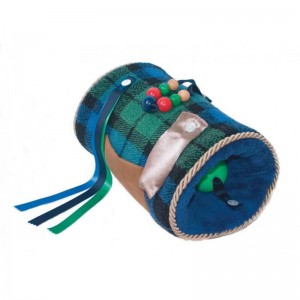 Keen knitters from across Birmingham and the West Midlands are being asked to get creative this Christmas to support people with dementia.
Keen knitters from across Birmingham and the West Midlands are being asked to get creative this Christmas to support people with dementia.
Heart of England Foundation Trust is hoping to capture the artistic talents of local people and knitting groups to create ‘Twiddlemuffs’.
And if you haven’t heard of Twiddlemuffs, they are hand knitted muffs which have been specially designed with the addition of buttons, beads, ribbons and zips, to provide simple stimulation for active hands.
Margaret Light, who developed the idea for her grandmother Lily, said: “Twiddlemuff was created to give my Grandmother’s inquisitive hands something to keep them moving, active and warm and remind her how much she is loved even when I couldn’t be with her.”
Phil Hall, senior dementia nurse at Solihull Hospital, said: “We know Twiddlemuffs can be very reassuring and comforting for patients and would be delighted if willing knitters would give up some time to support us. You can find the pattern and information on how to create Twiddlemuffs by visiting the Trust website www.heartofengland.nhs.uk/elderly-medicine.
“Having something to twiddle with can have a calming effect on a person who has dementia. The stimulation Twiddlemuffs provide can really add to an individual’s quality of life.
“If you aren’t a knitter but still want to support the cause, we would welcome donations of new wool, buttons, beads, ribbons, zips, or anything that could be used to enhance the muffs safely.”
If you would like further information about Twiddlemuffs, please contact Angela Barton on 07870 156033 or email angela.barton@heartofengland.nhs.uk.
You can send your completed Twiddlemuffs or donations to: Twiddlemuffs c/o Angela Barton, DADOT Office (Ward 10 corridor), Solihull Hospital, Lode Lane, Solihull, B91 2JL.






